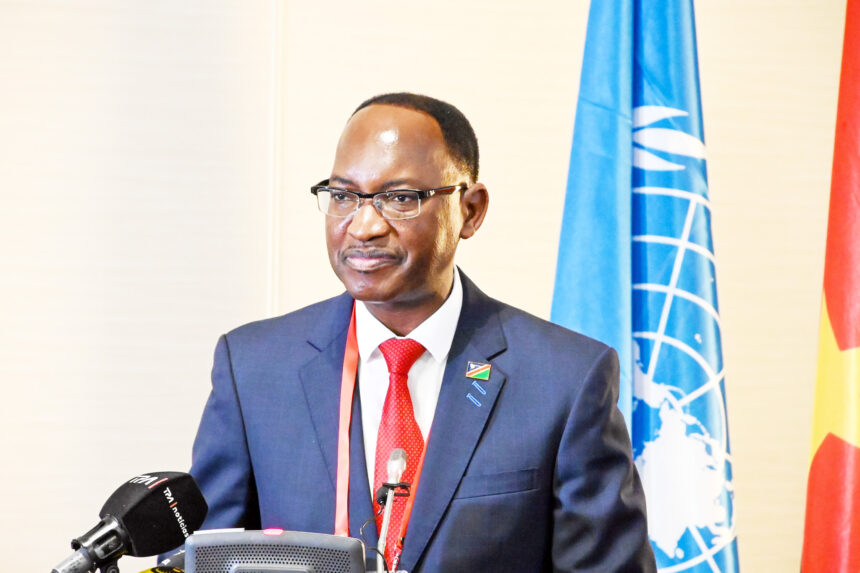OUTAPI – Anti-Corruption Commission director general Paulus Noa has told local businesspeople to focus on acquiring materials necessary for constructing quality infrastructure instead of buying flashy cars.
Noa was speaking at the Omusati annual regional forum on the implementation of the National Anti-Corruption Strategy and Action Plan on Tuesday.
“This unethical practice leads to poor quality infrastructure and financial consequences, and this has discouraged the government from awarding contracts to our local people,” he said.
He also stated it drains the economy of this country when contracts are being awarded to foreigners, “while we have our people who can do the work”.
“They should not only be interested in their personal things than building quality infrastructure and prove themselves to benefit more from the government,” stressed Noa.
He added that corruption drains resources from much-needed investments, particularly in areas such as health, education, infrastructure, and other basic services.
Transparency International (TI) agrees with this stance, saying “Despite an economic growth rate of 3.3% in 2023, sub-Saharan Africa continues to grapple with extreme poverty, affecting about 462 million people. The region’s persistent challenges stem from decades of severe underfunding in public sectors, exacerbated by corruption and illicit financial flows syphoning resources away from basic public services.”
On TI’s Corruption Perception Index, Namibia has a score of 49, ranking 59 out of 180 countries. The Corruption Perceptions Index is the leading global indicator of public sector corruption.
Noa indicated that the public wants all contracts to be awarded to Namibians, but local contractors should produce properly to prove themselves.
He said they do not want to waste money on poor infrastructure, and after a year it should be demolished or renovated due to the poor material used, and another contractor from other countries would come to rebuild it.
“It is a shame to all of us; let’s join hands, fight corruption together and build this country,” he advised.
Noa highlighted that good governance at local and regional authorities is key to economic development.
“Corruption has the ability to derail national projects meant to improve the standard of living for citizens, thereby posing a great challenge to the alleviation of poverty in our societies,” said Noa.
Moreover, Noa indicated that the country’s strategy has eight strategic objectives and 95 actions being implemented by 44 lead institutions, with the ACC playing the role of coordinator.
The 2023/2024 financial year marks the second year of the actual implementation of the strategy. During the 2022/2023 financial year, 13 out of 16 cluster meetings were held to review the progress of strategy implementation.
Noa said that this progress builds on the milestone of the 2022/23 financial year, during which 87 of the 95 actions were successfully implemented by the 44 institutions under NACSAP.
The Cabinet approved the National Anti-Corruption Strategy and Action Plan (NACSAP) 2021-2025 at its 22nd (2021) Decision-Making Meeting, held on 9 December 2021.
Omusati governor Erginus Endjala indicated that corruption increases inequality, decreases accountability and political responsiveness, and thus produces rising frustration and hardship among citizens, who are then more likely to accept or even demand hard-handed and illiberal tactics.
“Corruption also erodes the trust we have in the public sector to act in our best interests,” he said.
ACC chief investigative officer at the Oshakati regional office, Thomas Shangula, said since 2020 till this month, the Omusati region has only recorded 15 cases.
“We receive, we examine, and the commission decides whether the investigation has reasonable grounds or needs to be referred,” he said.
Shangula also pointed out challenges such as geographical areas; he said they only have one office in Oshakati, but they cover all northern regions with limited staff members.
He further said Omusati is doing well, as most cases are finalised.


